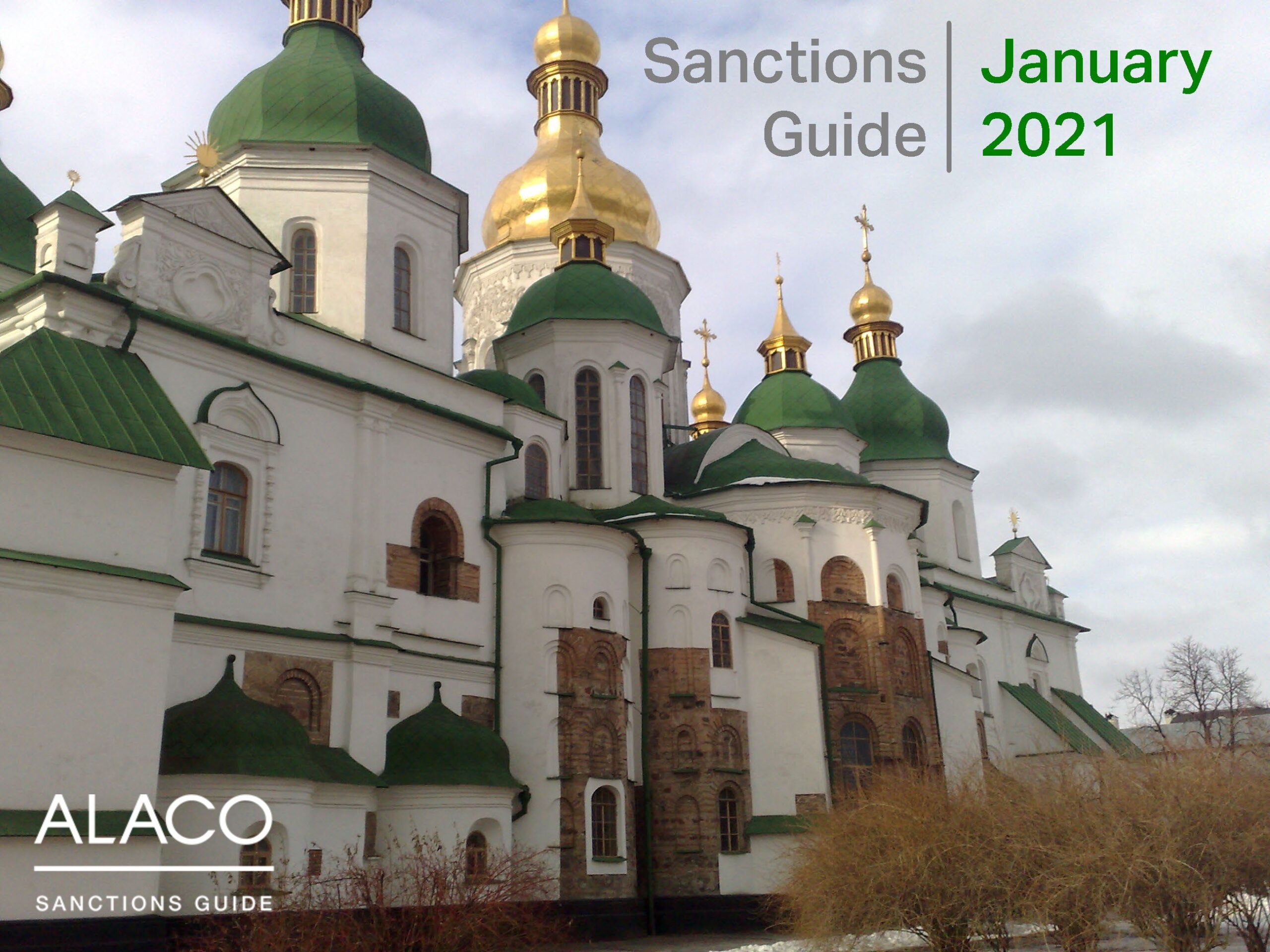Key sanctions developments in January include the UK’s new autonomous sanctions regime, a raft of designations by the outgoing Trump administration, and a new sanctions policy strategy published by the EU Commission.
- At 11pm on the 31st December 2020, the UK’s autonomous sanctions regime, comprising approximately 30 regulations, came into force. It is closely based on EU sanctions legislation previously implemented in the UK. The principal divergence from the old EU regulations is that the Treasury has declined to enact specific sanctions programs against Egypt, Ukraine, and Tunisia. OFSI has opted instead to create a new generic regime – The Misappropriation (Sanctions) (EU Exit) Regulations 2020 – which seeks to deter and punish misappropriation of State funds from any foreign country. As a result, 50 fewer people are designated compared to the EU’s equivalent country programs. Almost all of the 50 cases relate to Tunisian civil servants and their families; the FCO has indicated that under the UK criteria there was insufficient evidence to sanction them.
- The European Commission has made its own revisions to sanctions policy following the UK’s exit from the union, publishing on 19th January an official communication setting out its new strategy entitled “The European economic and financial system: fostering openness, strength and resilience”. The document envisages a far more active role for the Commission in the EU’s decision-making process via the creation of a “Sanctions Information Exchange Repository”. This system envisages the Commission acting as the single contact point for all enforcement and implementation issues relating to sanctions. The move follows numerous prior reports which characterised the UK as having historically taken a leading role in the design and implementation of EU sanctions via the European Council.
- In the US, one of the Trump government’s final acts was the re-designated of Cuba as a state sponsor of international terrorism on 12th The move reversed a détente between the two countries which dates back to Obama’s time in office. Additionally, on Friday 15th January Secretary for State Mike Pompeo imposed sanctions against the Islamic Republic of Iran Shipping Lines, its CEOs and several companies that shipped steel to Iran via the Iranian shipping company. The Trump administration also designated Yemen’s Houthi rebels as a terrorist organisation, although days later the new administration issued a General License to allow aid to flow to the rebels.
- Janet Yellen, President Biden’s then Treasury Secretary nominee, confirmed in an appearance before the Senate Finance Committee on 19th January that she plans to launch a review of US sanctions policy to ensure that sanctions are used “strategically and appropriately”. This led to press speculation that the new administration will not share President Trump’s enthusiasm for utilising OFAC, and may seek instead to de-escalate in some areas. Yellen was sworn in on 26th January.
- The inclusion of many Obama-era officials in the incoming administration’s foreign policy unit has led to renewed press speculation concerning its likely strategy for dealing with Iran. President Biden signalled frequently during the election campaign that he would seek to revive the JCPOA, however he will face obstacles in the US Senate as well as significant diplomatic hurdles. The Saudi Foreign Minister, Prince Faisal bin Farhan, has stated publicly that the Gulf must be consulted on any new deal and the Israeli government has said there can be no return to the terms of the JCPOA.
- US and Iranian public officials have traded words publicly over likely next steps. Iranian Foreign Minister Mohammad Javad Zarif has ruled out reversing its breaches of the nuclear deal until US sanctions are removed, while President Biden’s Director of National Intelligence, Avril Haines, said at her Senate confirmation hearing that the US is “a long way [from re-signing the JCPOA]”, indicating that any change on policy would have to be predicated on a reduction in Iran’s “destabilizing activities” and a resolution to outstanding “ballistic missile issues”.
- Key SDN list developments over the last month include the EU’s designation of Syria’s Minister of Foreign Affairs on January 15th for his role in the repression of the Syrian people and the renewal of its “misappropriation sanctions” against Tunisia for an additional year. The UN Security Council and the EU have also delisted two Iraqi nationals from asset freeze lists.
- There have been widespread calls, including via resolution in the European Parliament, that the detention of Russian opposition leader, Alexei Navalny, should lead to a new raft of international sanctions against Russia, although this is yet to materialise. The detention also led many allies of Germany, including the US, France and Poland, to plead with Chancellor Merkel directly to halt the Nord Stream II project, although early indications from Berlin are that it will continue.
- Meanwhile, the US announced its first Nord Stream II designations, sanctioning Russian-incorporated entity OOO KVT-RUS as well identifying as blocked property its vessel, FORTUNA, which has been involved in pipe-laying activities as part of the pipeline’s construction. KVT-RUS has been listed under Section 232 of the Countering America’s Adversaries Through Sanctions Act (CAATSA), which targets those who either make investments that directly and significantly contribute to the enhancement of the ability of Russia to construct energy export pipelines; or sell, lease or provide goods, services, technology, information or support to the Russian Federation for the construction of Russian energy export pipelines. The investment threshold for Section 232 of CAATSA is set at $1 million, or $5 million over a 12-month period.


